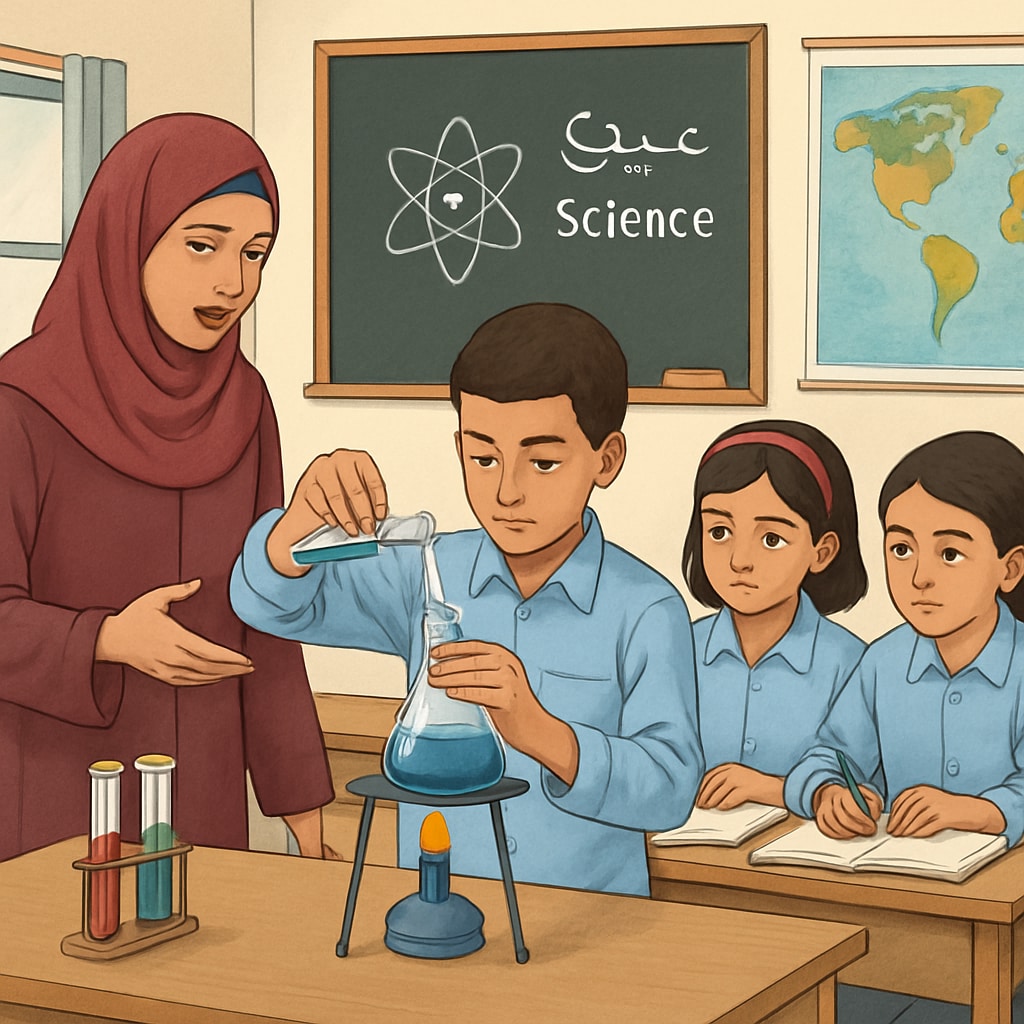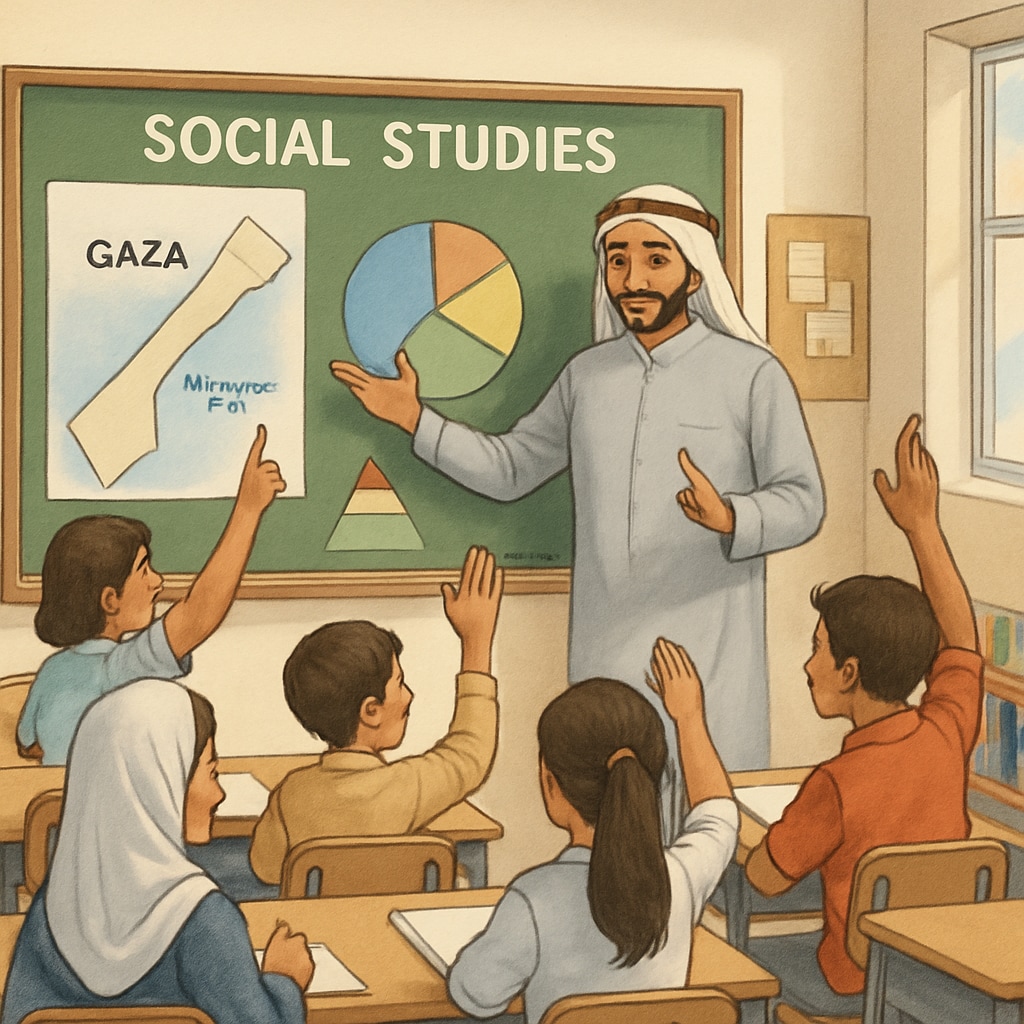In the aftermath of prolonged conflict, the task of rebuilding education systems in Gaza is both urgent and complex. The development of robust science and social studies curricula is a cornerstone of this effort, offering students the opportunity to gain critical knowledge and skills despite the challenging environment. Crafting a comprehensive teaching framework in Gaza schools requires innovative approaches to curriculum planning that address both the immediate needs of students and the long-term goals of the community.

Challenges in Post-Conflict Education
Gaza faces numerous obstacles in rebuilding its education system. Damaged infrastructure, limited resources, and the psychological impact of conflict on both students and teachers create a challenging environment for learning. Science and social studies, in particular, require specialized materials, such as laboratory equipment and historical texts, which are often in short supply.
Moreover, the content of these subjects must be carefully tailored to reflect local realities while fostering a global perspective. For example, science curricula must focus not only on universal principles but also on practical applications relevant to Gaza’s unique environment, such as water management and renewable energy solutions. Similarly, social studies should promote critical thinking about history and society, helping students develop a nuanced understanding of their own context while encouraging empathy and connection with the wider world.
Key Considerations for Curriculum Development
Designing effective curricula for Gaza schools involves addressing several key factors:
- Cultural Sensitivity: Educational content must respect and reflect local traditions and values while promoting inclusivity and open-mindedness.
- Resource Efficiency: Curricula should be adaptable to the limited educational resources available, leveraging low-cost, innovative teaching methods.
- Mental Health Support: Integrating psychosocial support into the curriculum can help students cope with the trauma of conflict, fostering a safer, more supportive learning environment.
In addition, collaboration with international organizations and educational experts can provide valuable insights and resources. For example, UNESCO has developed guidelines for education in emergencies that could serve as a framework for Gaza’s curriculum planning (UNESCO Education in Emergencies).

Implementing Science and Social Studies in Gaza Schools
To make science and social studies curricula both impactful and sustainable, implementation strategies must focus on accessibility and innovation:
- Blended Learning Models: Combining traditional classroom instruction with digital resources can maximize learning opportunities, even in resource-constrained environments.
- Community Involvement: Engaging parents and local leaders in the educational process can strengthen support for schools and encourage a culture of learning.
- Teacher Training: Providing professional development for teachers ensures they are equipped to deliver complex subjects effectively and adapt to the needs of their students.
Furthermore, partnerships with organizations specializing in education technology can help provide innovative tools for teaching. For instance, platforms like Khan Academy offer free, high-quality educational content that could be adapted to Gaza’s context (Khan Academy).
Looking Ahead: A Vision for Resilient Education
The development of science and social studies curricula in Gaza is not just about rebuilding what was lost—it is an opportunity to create a more resilient and adaptive education system. By focusing on inclusivity, practicality, and innovation, educators can equip students with the knowledge and skills they need to thrive in a challenging world.
In conclusion, rebuilding education in Gaza requires a holistic approach that addresses the unique challenges of the region while leveraging global best practices. Through careful curriculum planning, resourceful implementation, and community collaboration, Gaza’s schools can become beacons of hope and progress, even in the face of adversity.
Readability guidance: This article prioritizes clear, concise language and short paragraphs to enhance readability. Lists are used to summarize key points, and transitions ensure smooth flow between sections. External links provide additional context and credibility.


